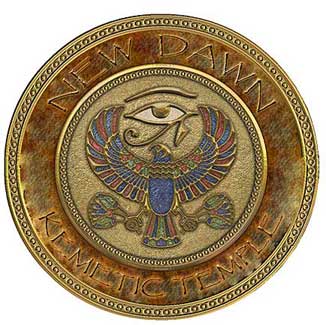|
|
|


There are however also other areas where we find common ground with the ancients, where their emotional concerns clearly resonate with our own. In ancient days possession of lush, healthy fertility, the ability to bring forth children, was paramount. Folklore, artifacts and writings demonstrate the importance. Medical formula after formula, amulet after amulet, spiritual petition after petition attests to this concern. Of course, that concern and emphasis on fertility was not relegated to the ancient world, it lingered in many traditional societies, including that of rural Egypt. Recently that concern has dramatically reawakened in the West. In the last fifty years, fertility rates have declined drastically, for both men and women and in fact, for many other mammal species. For decades, the emphasis in the industrialized west was on controlling reproduction, on not getting pregnant at the wrong time. Now infertility has transformed into a huge business. Hopes are pinned on expensive, experimental procedures. The ancients would have understood and sympathized. Here, too, we share common ground.
A traditional and ancient method of healing fertility (or indeed any ailment or challenge) has been pilgrimage to a healing shrine. Journeys to distant shrines are among the roots of the tourist industry. The premise is that by journeying to a specific area, offering prayers, petitions or in some case following a prescribed ritual, fertility will be bestowed or healed. Through divine intervention, a healthy child will be born with relative ease. There are famed healing shrines all over Earth; not all are concerned with fertility. Ancient Celtic France was the center of many healing shrines devoted to illnesses of the eye. Other shrines, such as modern day Lourdes, are general miracle shrines: you may request whatever sort of miracle you personally need. There are however, shrines that are specifically famous for testimonials of healed and increased fertility. Over the ages, their reputations have increased and now women may journey there specifically because of reproductive concerns. Several of the most famous are in Egypt.
These shrines are not just historic footnotes; modern women still venture to all four of the following sites for healed and enhanced fertility. (Although obstacles to fertility may derive from either the male or female partner and in fact it has been reduced male fertility that has created the big headlines recently, even today petitioners tend to be women, although they may come to beg for assistance for their partner.)
It's important to note that not one of the following sites was created or intended specifically as a fertility shrine (although there are such places on Earth.) Each is important and renowned for religious or historic reasons. Many venture to the following places for important reasons having nothing to do with babies. Instead, centuries of human desire and testimony have imparted an extra dimension, an added bonus, if you will, to the already existing importance of the following sites:
A particularly ancient and important Egyptian deity, in an era when religious veneration tended to be extremely localized, Hathor was worshipped over a very large area, at one time extending as far as modern Syria. Sinai was considered under her dominion but her cult center was in Dendera. The ancient Egyptians seemed to have perceived it as the navel of the world, much as the Greeks did Delphi. Hathor was particularly concerned with women, their health and affairs and was believed capable of imparting fertility. To this day, temple visitations are made by women pursuing rejuvenated fertility. The recommended ritual is to leap over the carved figures, particularly that of Bes, protector of women and provider of children. Women are also recommended to pass their hands over the figures of Hathor and her consort Horus while praying for a successful pregnancy.
The rituals at Dendera, ancient though they may be, are shared by local women as well as with goddess-worshipping tourists from abroad. Another area, replete with ritual, remains more of a local secret. The city of Tanis was the 11th century BCE national capital and military stronghold. Half a statue of Pharaoh Ramses II remains. Childless women from the area, journey to the statue bearing jugs of water, which they then pour over themselves. The jugs are then broken and the women depart, expecting to conceive shortly. Perhaps it's hoped that Ramses' own reproductive capacities may be contagious. Ramses II is reputed to have sired at least 100 sons and over 50 daughters.
Two other sites reputed to boost fertility exist in Egypt's modern capital.
The Mosque of Sayyida Zeinab is considered so sacred that it is one of only two mosques in Cairo completely off-limits to non-Muslims. Sayyida Zeinab, the granddaughter of the Prophet Muhammed, is the matron saint of the city of Cairo and a particularly beloved and venerated saint. The mosque named in her honor houses her mausoleum. Her tomb is the site of many pilgrimages and many women attest to her generous assistance in matters of conception and safe pregnancy. Prayers and petitions offered at the screen surrounding her tomb are deemed especially effective.
Cairo's Ben Ezra Synagogue is Egypt's oldest synagogue. Tradition
has it that it was built on the site where Moses was pulled from the bulrushes.
Inside there is a marble monument dedicated to Moses. Women of all faiths come
to touch this monument in the belief that it aids conception. The synagogue
is located at Sharia Mari Girgis, Old Cairo.